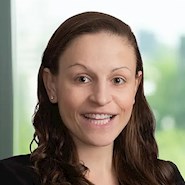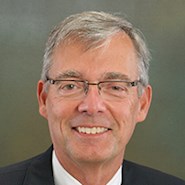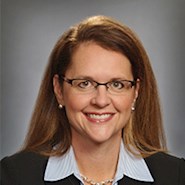By Ashley P. Cullinan, Michael C. Loulakis, and Lauren P. McLaughlin
The old adage “rules are made to be followed” has no greater applicability than in complex construction litigation. Because construction disputes usually involve highly technical facts and issues, many litigants end up in “battle of the experts” lawsuits – those in which the critical issue in dispute is to be conveyed not through fact witnesses but by retained experts.
While retaining and designating an expert to form opinions and testify at trial is a critical component of construction litigation, it is also an area that is rife with procedural disputes to be waged. This is because courts are the “gatekeepers” of which evidence is admitted or barred. As such, failing to follow the procedural rules concerning experts can be fatal to one’s case.
Further reading:
- Integrity is paramount when engineers act as expert witnesses
- The perils of calling an expert witness
- Examining the ethics of expert testimony
Below are snapshots of three recent federal cases involving procedural disputes over the admissibility of expert testimony. Two involve appeals to the U.S. Circuit Court of Appeals over missed deadlines to disclose experts; the other concerns a challenge to the methodology used.
In the first case, a developer failed to properly disclose its expert to the opposing party. The court ruled the expert testimony could not be introduced at trial – and without such expert testimony, the developer could not prove its claims involving highly technical issues. Essentially, its whole case was dismissed.
In the second decision, the court excluded a project owner’s sole expert witness from testifying, as the owner failed to timely provide expert designations and expert reports pursuant to the court’s scheduling order.
The third case illustrates that a court may decide whether an expert’s testimony is admissible when the testimony is challenged solely on its weight and the damages methodology used. These cases not only place emphasis on the courts’ role in ensuring compliance with rules but also highlight the additional attendant risks of litigating construction disputes.
Developer’s suit dismissed against engineer, others
In KOKO Development LLC v. Phillips & Jordan Inc., KOKO, the developer, purchased undeveloped land and hired the defendants to subdivide the land, prepare the soil, install infrastructure, and sell the lots for the construction of houses. The lots had numerous problems, and as a result, KOKO was required to expend extra money to prepare the lots for sale. KOKO brought claims of negligence and breach of contract against the general contractor, the excavation company, and the supervision/inspection company (an engineering firm). Shortly thereafter, the defendants filed a motion for summary judgment, asserting that KOKO had not designated any expert witnesses and that without expert testimony, KOKO could not establish its claims, as those claims involved highly technical issues.
As happens in most lawsuits, a scheduling order was issued at the outset of the case, and the parties began the discovery process. KOKO timely served on the opposing parties an identification of all its witnesses. KOKO identified 12 fact witnesses, in compliance with Federal Rules of Civil Procedure, but failed to name any expert witnesses. Federal rules require that a party disclose all individuals designated as experts whom a party intends to use at trial to present evidence. In so doing, the disclosing party must also provide an expert report for each of the designated witnesses, containing the opinions the experts intend to offer.
In response to the defendants’ motion for summary judgment, KOKO contended that three of the fact witnesses it identified could provide expert testimony based on personal experience. KOKO further argued that, because the witnesses were testifying based on their personal experience, its failure to designate them as expert witnesses did not prejudice the defendants. However, the district court did not agree, and from a precedential standpoint, acceptance of KOKO’s argument would render the witness disclosure requirements meaningless.
The court noted, “under a plain reading of the rule, witnesses presenting expert testimony must be specifically identified as witnesses presenting expert testimony – not as fact witnesses – under Rule 26(a).”
The court also used this decision to state that fact witness testimony is “not based on scientific, technical, or other specialized knowledge within the scope of Rule 702.” When looking at the complaint, the court found that expert testimony was required for KOKO to prove its claims for negligence and breach of contract.
In its complaint, KOKO alleged: “(The plaintiff) is wholly untrained in the construction of the infrastructure (at the development and) relied upon the acts, recommendations, and advice of (the defendants).” The district court noted that, “When the plaintiff admits that issues relevant to its claims are beyond its own experience and understanding, a jury cannot be expected to understand the issues without the benefit of expert testimony.”
Thus, the relevant issues in this case involved an understanding of infrastructure and engineering – and while those require expert testimony, KOKO failed to properly designate any experts. Accordingly, the U.S. Court of Appeals for the 8th Circuit affirmed the district court’s granting of the defendants’ motion for summary judgment, thereby dismissing KOKO’s complaint.
Court excludes plaintiff’s sole expert witness – resulting in dismissal
The case of Stewart v. Gruber involves project owners who hired an architect to design an apartment complex. Postconstruction, the plaintiffs sued the architect for professional negligence and breach of contract, alleging that the architectural design was faulty and caused myriad defects.
During discovery, the plaintiffs produced a field report and simultaneously indicated in their discovery responses they had not yet retained expert witnesses in this matter. The court’s scheduling order indicated that April 21, 2022, was the deadline for the plaintiffs to identify experts and produce reports in compliance with Rule 26.
The plaintiffs not only failed to designate any experts by the deadline, but five days later, they emailed the defendants what they called a “preliminary expert report” and noted that an amended field report was being prepared. The last line in the email requested that the architect defendants “please advise at your earliest convenience, no later than end of day (April 28, 2022) whether a motion to extend expert deadlines will be opposed.”
Shortly thereafter, the plaintiffs’ counsel informed the defendants’ counsel that it would be providing the defendants with an amended expert report. The architect defendants filed a motion to strike the report as untimely and to prohibit its author from testifying as an expert at trial. The defendants subsequently filed a motion for summary judgment on the basis that without the field report and its author’s testimony, the plaintiffs could not establish the standard of care necessary to prove their case. The district court granted the motion.
This case places Federal Rule of Civil Procedure 37(c)(1) at the forefront, as it provides that “if a party fails to provide information or identify a witness as required by Rule 26(a) or (e), the party is not allowed to use that information or witness to supply evidence on a motion, at a hearing, or at trial, unless the failure was substantially justified or is harmless.” Rule 37 also explains the court’s ability to impose other appropriate sanctions in addition to or instead of excluding the witness.
The U.S. Court of Appeals for the 5th Circuit reviewed the district court’s granting of defendants’ motion for summary judgment “by considering the following four factors: 1) the explanation for the failure to identify the witness, 2) the importance of the testimony, 3) potential prejudice in allowing the testimony, and 4) the availability of a continuance to cure such prejudice.”
It was clear to the court that the plaintiffs never explained their failure to designate experts and provide a complete expert report – and the plaintiffs did not dispute this reality. Despite the fact that the plaintiffs testified to the criticality of their expert’s testimony, this argument did not fare well with the court, as it is the court’s job to uphold and enforce the deadlines of the scheduling order. The court significantly pointed out that the importance of expert testimony cannot simply override the enforcement of rules and scheduling orders.
The court also noted that there was a real concern regarding prejudice toward the defendants, who were not provided with a sufficient expert report until long past the deadline provided in the scheduling order, and their ability to prepare for trial. While the plaintiffs asserted that any alleged prejudice could have been cured by allowing the defendants to depose the expert witness and providing the defendants an opportunity to offer expert testimony in rebuttal, the court pointed out that the plaintiffs failed to join in on a motion for extension of expert deadlines (or seek any extension whatsoever).
In the court’s maintenance of an orderly docket, where parties comply with rules, including and especially all expert disclosure requirements, the court emphasizes, “Because of a trial court’s need to control its docket, a party’s violation of the court’s scheduling order should not routinely justify a continuance.” Accordingly, the U.S. Court of Appeals for the 8th Circuit affirmed the district court’s decision granting the defendants’ motion for summary judgment, thereby excluding the plaintiffs’ expert witness. The very effect of excluding the plaintiffs’ expert’s opinion was that the plaintiffs could not wholly prove their claims, and thus, the court’s granting of the defendants’ motion for summary judgment resulted in the dismissal of the suit.
Courts are gatekeepers to admitting expert testimony
In AECOM Technical Services Inc. v. Flatiron AECOM LLC, the U.S. District Court for the District of Colorado was presented with AECOM’s motions to exclude the expert testimony of Flatiron’s standard of care expert and its damages expert, pursuant to the Federal Rules of Evidence 702.
This matter involved a Colorado Department of Transportation project that intended to add express lanes to a major highway south of Denver. The contractor, Flatiron, agreed to complete the project for $204 million. While change orders increased the contract price to $237 million, Flatiron’s expenditures totaled $502 million. Flatiron sued the designer, AECOM, to recover its additional expenditures. In support of its damages claim, Flatiron intended to present expert testimony that used the modified total cost method to calculate damages. AECOM took issue with this method.
AECOM moved to exclude testimony of both expert witnesses on substantive grounds – the methodologies relied upon in forming their opinions. The experts allegedly used the total cost method for the calculation of damages, which AECOM argued is disfavored by Colorado courts. Although Flatiron’s standard of care expert was not a damages expert, AECOM also asked the court to exclude certain opinions of the witness, who opined that AECOM’s performance of pre-award design services included 72 violations of the standard of care, resulting in “significant scope growth, quantity increases, schedule impacts, and costs increases on the project.” AECOM sought to exclude these opinions because they would be “unhelpful to the jury and are based on a flawed methodology.”
The court first concluded that AECOM’s objections to the standard of care expert’s testimony went to weight and not admissibility. As Flatiron explained, the witness was a standard of care expert, not a damages expert, and therefore, his opinions would assist the jury in understanding the issue of liability. The court agreed.
AECOM then argued that the court should exclude the damages expert’s testimony because he relied upon the total cost method to calculate damages, which AECOM argued violated Colorado law. While the court acknowledged that the total cost method is disfavored by Colorado courts and may someday be rejected, it refused to exclude the witness’s testimony because the court found that he did not use the total cost method (he used a modified total cost method) and that, pursuant to the WJM Revised Practice Standard III.H.1:
Many Rule 702 motions are veiled dispositive motions, in the sense that the moving party seeks to exclude expert evidence and thereby leave the opposing party without evidence necessary to prove an element of its claim or defense. In most circumstances, such a tactic contradicts the strong preference for deciding cases on their merits.
Thus, if the court were to exclude the damages expert’s opinions, Flatiron would be unable to prove the damages element of its breach of contract claim at trial – which would inherently fail without such expert support. The court was not inclined to exclude the testimony. The court further noted that any challenges to the expert’s methodology were best suited to cross-examination during trial. Accordingly, the court denied both of AECOM’s motions for summary judgment and allowed the testimony of both of Flatiron’s experts.
Takeaways on procedural hoops of expert testimony
Construction litigation is costly. Additionally, taking a case to trial or arbitration is fraught with legal and procedural land mines that could potentially undermine one’s case. One easy way to avoid the risk of adverse court rulings on experts is to ensure that you strictly abide by the rules, regulations, and scheduling orders that establish the deadlines in any litigation. As the cases above demonstrate, compliance is essential, and noncompliance can lead to severe consequences such as expert testimony being excluded and/or having a case dismissed due to the exclusion of an expert who is critical to satisfying a burden of proof on any issue.
Keep in mind that the authority of a court to dismiss an entire action on the basis of a party’s failure to designate expert witnesses is powerful. The court’s authority does not end here and extends to the determination of admissibility of an expert’s testimony, including where questions are raised regarding the damages methodology used by an expert. This authority is paramount as the court is the gatekeeper of whether expert testimony comes in or is barred.





